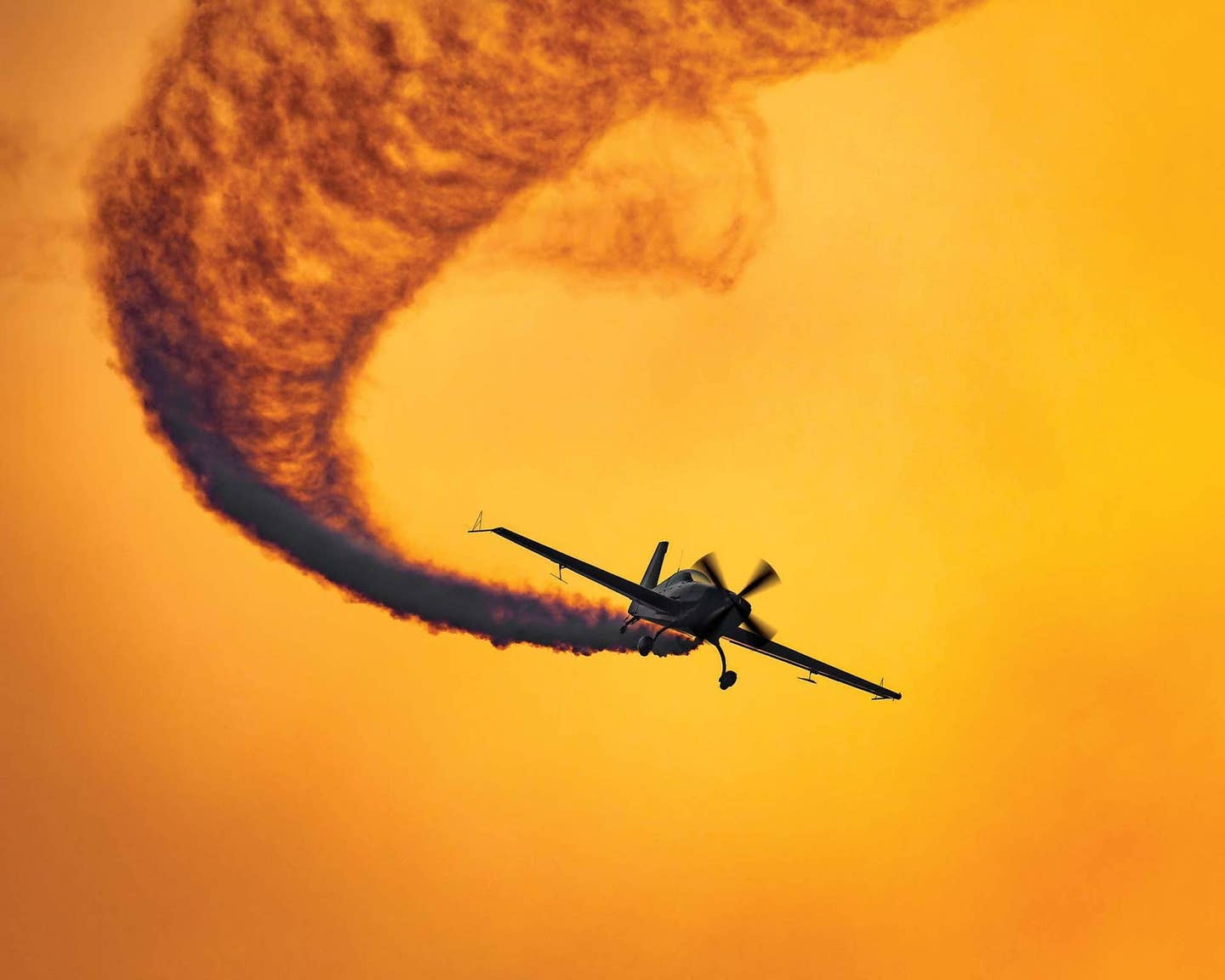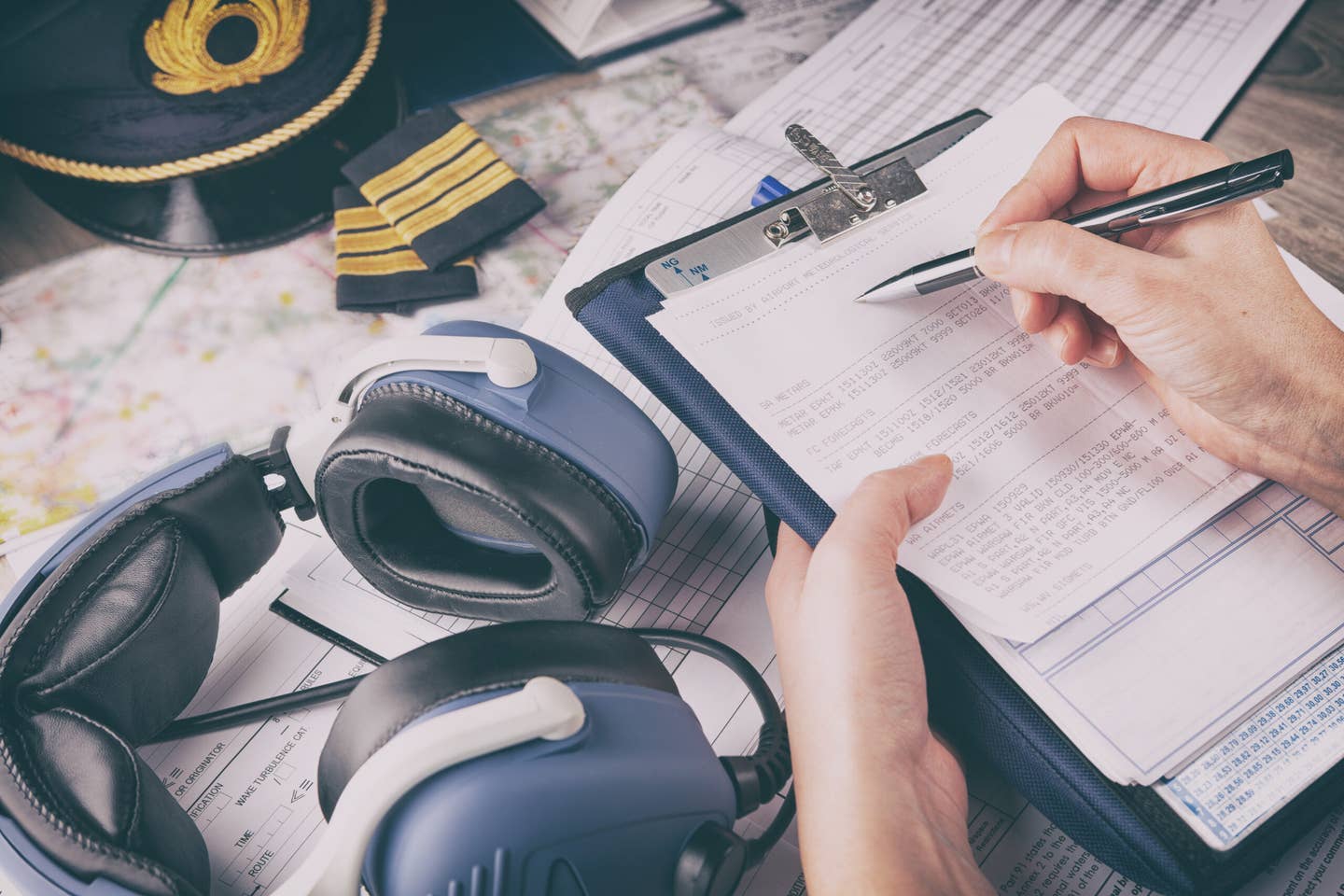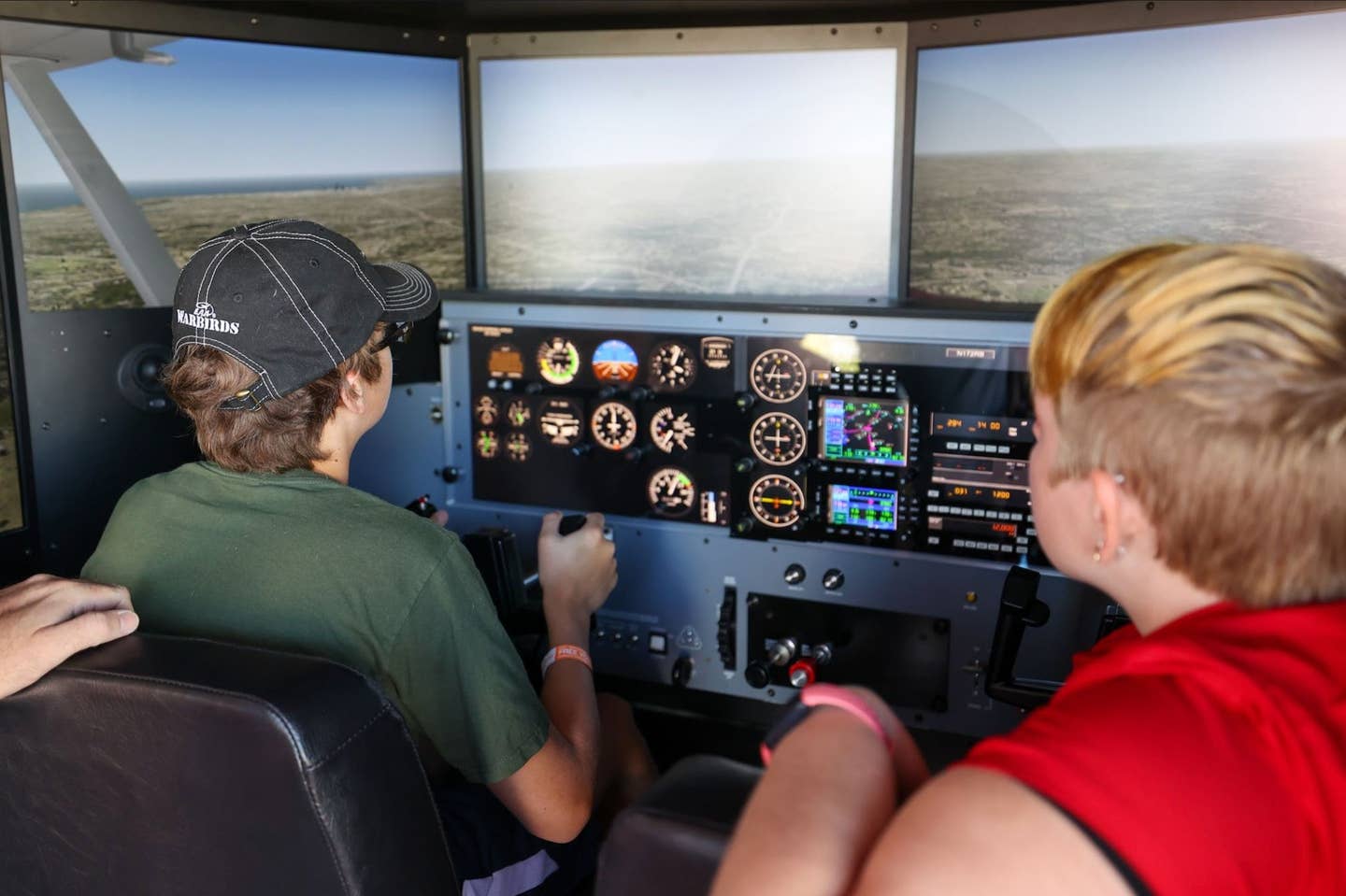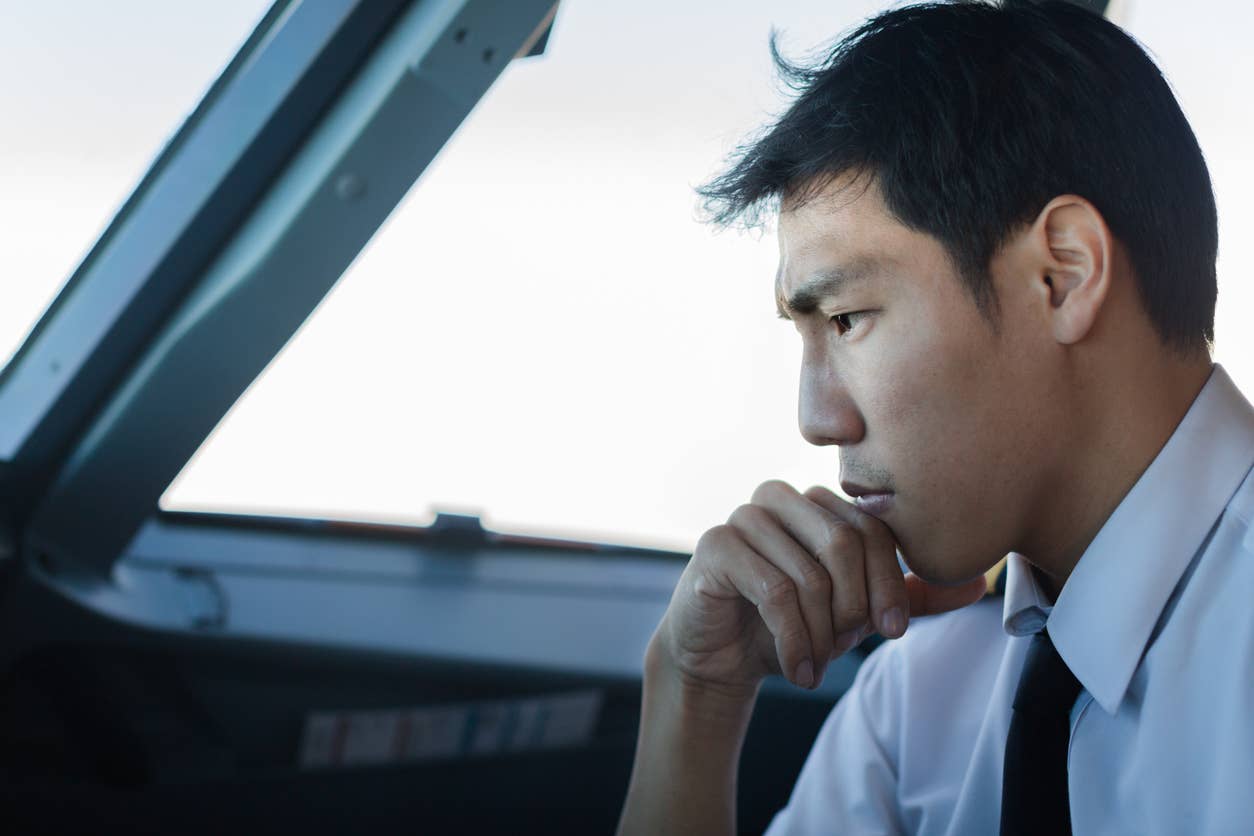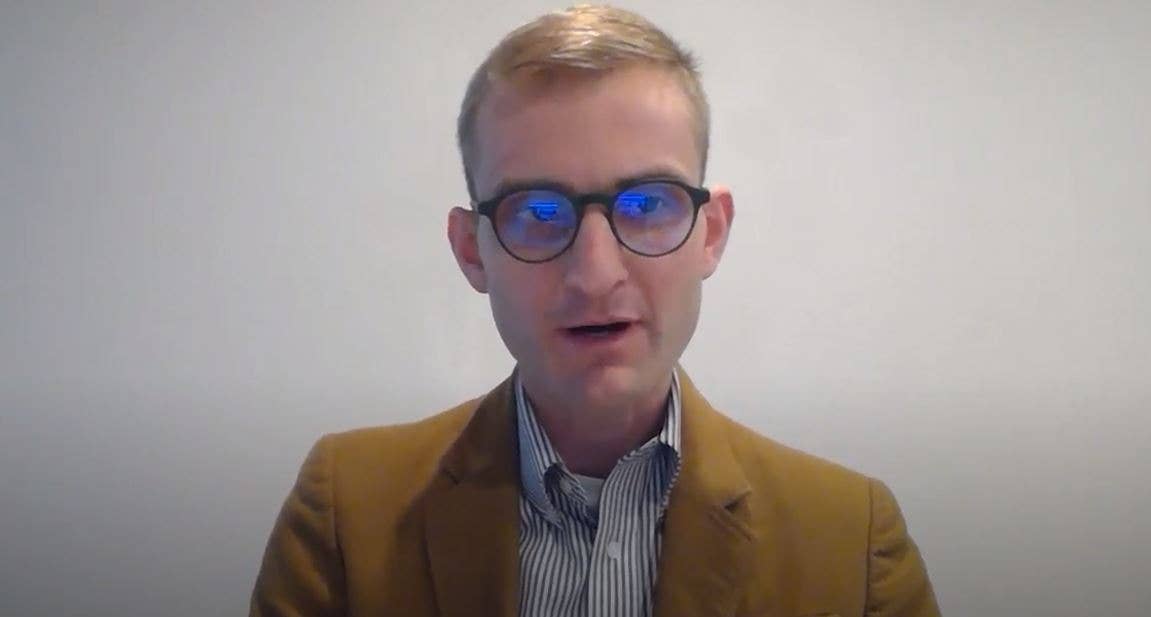Why Pilots Don’t Want To Talk About Mental Health—and Why They Should
Pilots get anxiety and depression just like many of the rest of us do, but they seem less likely to seek support and treatment. Why? How can we change it?
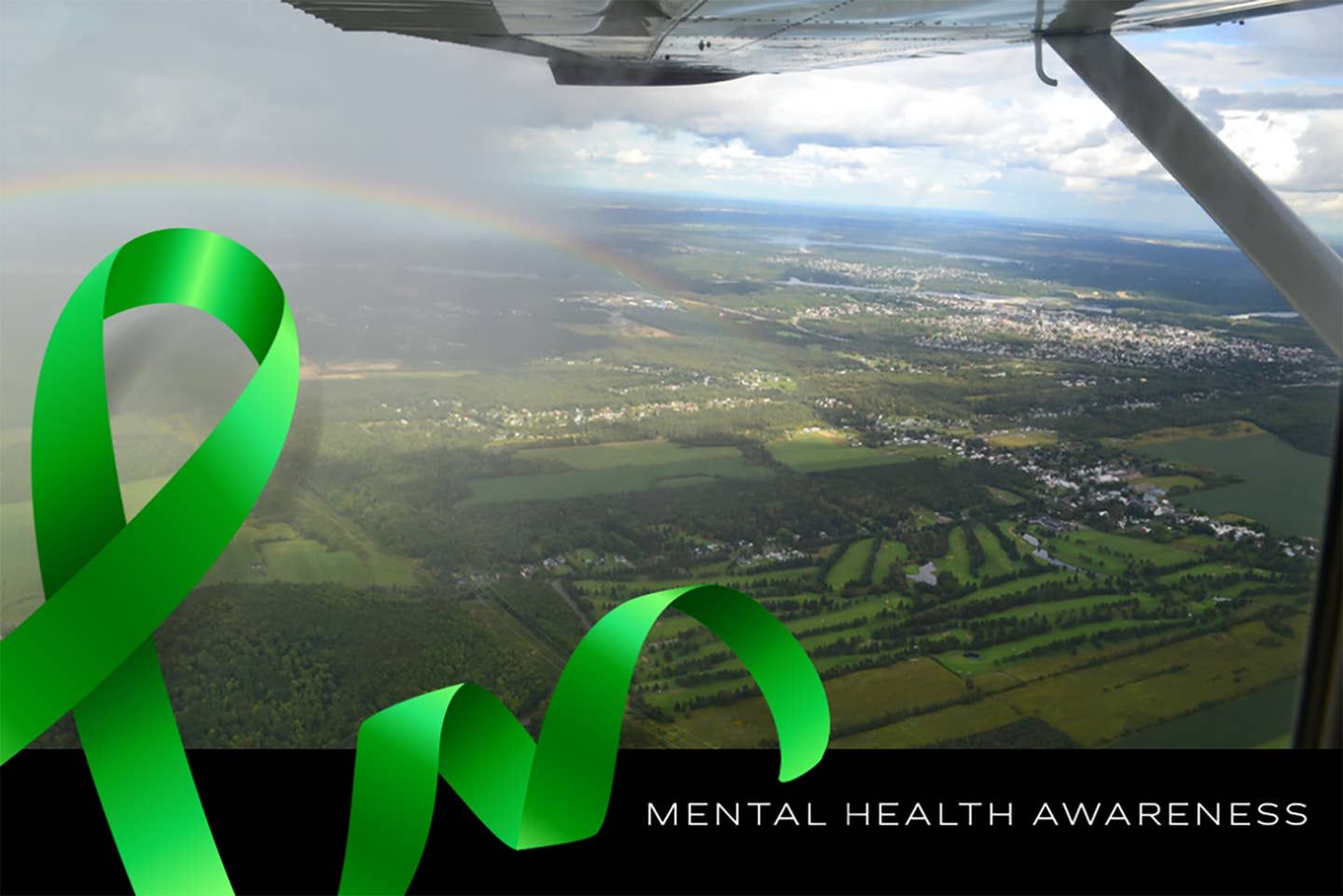
[Illustration by Amy Jo Sledge]
An airline captain flies long-haul on heavy equipment for an international carrier. He’s at the top of his game—both professionally and personally, with a young family and a successful side business that keeps him busy and fulfilled even on his days off.
"Pilots believe that being vulnerable, and sharing feelings or struggles, such as anxiety, depression, and chronic stress, would be at best humiliating or embarrassing, and, at worst, the end of their flying career."
Reyne O’Shaughnessy, an airline pilot and founder of Piloting to Wellbeing
But there’s an illness he must hide—and a fear that if his employer found out, it would mean the end of the career he dreamed of since he was a boy. It’s nothing that shows on the outside, nor on his aviation medical exam every six months. For his illness lies in his brain chemistry. By no fault of his own, his mind works against him. It convinces him that his success is a farce, that he’s an imposter in the life he has made.
It’s an all-too-common hallmark of depression—striking stars everyone seems to love and perhaps envy, like Anthony Bourdain or Robin Williams—the cruel twist that when you’re at the pinnacle of success, your brain on depression tells you that you just don’t deserve it all.
Pilots suffer from anxiety and depression just as the rest of the population does. But they seem to be even less likely than those in other careers to seek support and treatment.
At FLYING, we’re committed to probing whether this hunch is correct, and if so, why it’s the case. In doing so, we hope to shed light on mental health and offer strategies that pilots can use to preserve their own, just like they do their physical health.
The pilot we mentioned earlier is not a hypothetical person, but a real one—and a couple of decades ago, when he hit the bottom, he had to turn in his medical certificate. He was forced into retirement. He did lose a lot—but not everything.
He got help. He recovered. And today, the airline he flew for treats pilots with mental health issues differently than they did in the 1980s and ’90s. The industry is evolving. And we’re here to explore how that’s happening—and how you can help it continue to move forward when it comes to a pilot’s mental health.
The FAA and Mental Health
To become a pilot, whether recreationally or professionally, the FAA requires a person to hold a medical certificate. The examination to get an FAA medical, no matter the class, is similar to your average doctor’s office physical. While the main focus of the aviation medical examiner (AME) performing the physical does not involve mental health, there are a few things they may ask to ensure that the pilot is not struggling with any FAA-restricted mental illnesses.
To attain a clear medical, pilots must report any health professional visits during the previous three years and disclose all existing physical and psychological conditions and medications. Failure to do so can result in significant fines. If the AME feels more information is needed, they can order additional testing to make a determination about a pilot’s suitability for certification.
So What Is Allowed, According to the FAA?
Certain medical conditions such as psychosis, bipolar disorder, and severe personality disorder automatically disqualify a pilot from obtaining an FAA medical certificate and prohibit them from flying. Treatable conditions may allow the pilot to obtain a medical through reporting and monitoring programs. These instances are on a case-by-case basis and have a strict list of prohibited and permitted medications.
According to the National Institute for Mental Health, one of the most common types of mental illness today is depression. Of the six categories of depression medications, the FAA only permits one. Selective serotonin reuptake inhibitors (SSRIs), may be taken by approved pilots; but of the seven FDA-approved SSRIs, the FAA has only recognized four since 2010.
- Prozac (fluoxetine)
- Zoloft (sertraline)
- Celexa (citalopram)
- Lexapro (escitalopram)
While these medications are effective in treating depression, no other mental health medications to address other mental health issues are approved by the FAA for pilots.
What Do Mental Health Experts Say?
To explore the role of mental health for pilots, FLYING hosted a mental health roundtable on May 2. During the event, Dr. William Hoffman, a neurology resident and aeromedical researcher, spoke about his research into why pilots avoid taking care of their mental health.
“The small role our group is hoping to play is in trying to demonstrate the degree of pilot health care avoidance,” he said. “And we recently just published our study, thanks to the help of many including multiple airlines and…the University of North Dakota, among other organizations, that demonstrate in the largest study of over 4,000 pilots across the United States that over 56 percent of them freely admitted to some sort of health care avoidance behavior.”
In the study completed by Dr. Hoffman and others, it was found that out of a total of 3,765 pilot participants, 2,111 (56.1 percent) of them reported a history of health care avoidance because they feared losing their FAA medical certificate. Even if the pilot sought care, 994 (26.8 percent) misrepresented or withheld information on a healthcare form for the same reason.
Dr. Hoffman said he understands why pilots are hesitant to be transparent with AMEs and see a health care professional regarding mental health issues. But he believes getting care results in the best outcomes—even if there are obstacles during the journey.
“In the circumstance of having a medical condition, 100 percent, get the care that you need as soon as possible,” he said. “While there might be short-term repercussions as it relates to your medical certificate, that's how you can ensure that your health can be a tool for your long-term [wellness],” he said.
Mental Health and the Airlines
Because of the regulations around mental health reporting and the medications used to treat mental health illnesses, until recently, the airlines have been wary of opening a door for their employees—especially pilots—to be transparent about their mental health concerns. Now, many airlines, including major players such as American, United, and Delta, have created a “safe” space for pilots to address their mental health needs.
For example, American Airlines hosts a well-being team that can listen and will extend support to its employees. Through the Employee Assistance Program (EAP), all American Airlines’ employees and members of their households also have free and confidential access to EAP services anytime they need them.
When asked how American Airlines supports its pilots’ mental health, American well-being team member Kevin Reeves was hesitant to elaborate, saying, “As you know, American cares for its pilots and their families tremendously. We make sure to take care of them on life’s journey by providing various forms of support, including medical and mental health. At this time, we aren’t open to providing additional information regarding our support programs.”
Delta Air Lines has a similar well-being program available for its employees and announced the hiring of Dr. Henry Ting as its first chief health officer at the height of the pandemic. Just recently, Delta announced Dr. Ting will be staying onboard with Delta post-pandemic to focus less on physical health and more on the “wellness journey” of its employees. The details regarding Delta’s mental health program are unknown.
For airline employees who have access to an employer's mental health benefit but do not feel comfortable tapping into it for fear of repercussions, peer pilot support groups are available as a first step toward wellness.
Pilots Helping Pilots
Reyne O’Shaughnessy, an airline pilot and founder of Piloting to Wellbeing, understands the pressures of being a pilot and has been advocating for mental health in the industry for years. “Over 34 years, I saw a gap in where training has stopped and what pilots need; for example, pilots are struggling out there. So I created this company called Piloting to Wellbeing and where we target pilots, especially student pilots, [to] help them…navigate the complex world of aviation to keep them flying and fly healthily and safely.”
Piloting to Wellbeing is a mentoring and coaching program for pilots to navigate the complex, regulated system of aviation, in order to keep them flying and healthy. O’Shaughnessy acknowledged that most pilots are hesitant to express mental health issues. She wants to break down the barriers that prevent them from doing so, in order to achieve a healthier industry. When speaking about why pilots are afraid to seek help for mental health issues and some of the consequences of coming forward, she said, “None of us are eager to disclose deeply personal information. Pilots believe that being vulnerable, and sharing feelings or struggles, such as anxiety, depression, and chronic stress, would be at best humiliating or embarrassing, and, at worst, the end of their flying career. They keep quiet, go underground and put off doing anything about it until they can hardly function as a crew member anymore and are forced to take action. Pilots are reluctant to talk about issues such as stress, anxiety, depression, insomnia, and behaviors.”
Feeling as though the FAA plays a significant role in why pilots stay quiet, she went on to say, “The FAA regulations and regulators are the 800-pound gorillas that may help drive pilots underground. Aviators are forced by the regulatory environment to decide whether to seek help at the risk of being grounded. And once grounded, the lawyers and FAA doctors descend as pilots work to get reinstated to flying status.”
Lending a Listening Ear
John Hackworth definitely agrees there’s a problem with pilots not stepping up to address their mental health needs. A volunteer for the Air Line Pilots Association (ALPA) Pilot Peer Support (PPS) program and for JetBlue’s Pilot Assistance Network (PAN), he takes calls from pilots who are suffering emotional and/or mental distress and lends a listening ear.
“Pilots should absolutely feel OK to go seek mental health [care], and disclosing it to the FAA doesn’t mean you’re going to lose your medical certificate,” Hackworth said in an interview with FLYING prior to the roundtable event. Anyone who is struggling should feel comfortable and confident that they can get the help that they need, he added. Based on the calls PPS and PAN receive, he said most people just need someone they can talk to and don’t need elevated medical attention.
“We, literally, sometimes just need somebody to listen to us. And when you have somebody who first says that everything is going to be confidential, and on top of it, is a fellow brother or sister pilot… that’s hugely helpful for many people, and that takes up about 80 percent of the calls that we get.”
Calls to either program are strictly confidential and are not reported to the FAA or anyone else.
PPS/PAN are self-directed programs, Hackworth said. In addition to providing basic peer counseling/listening services, they’re meant to arm those who are suffering more severe mental health issues with next-step resources. For example, the Aviation Medicine Advisory Service (AMAS), which provides aeromedical consultation and is a free benefit for ALPA members, is one resource that can be helpful, Hackworth said. “The goal is to empower the pilot to make their own decisions, unique or specific to their situation, and to utilize with greater knowledge and understanding the resources available to them.”
“Truth be told, it’s a very rare circumstance for a pilot who receives mental health [care] to lose their medical.”
John Hackworth, co-founder and president, Professional Pilots of Tomorrow
In a minority of cases, a pilot will seek elevated mental health care and have things go badly, resulting in the loss of their medical certification. Hackworth said the pilot community/rumor mill ends up exaggerating and sensationalizing these cases, which creates misconceptions and fear for those who might have legitimate mental health care needs.
“That’s how we get where we are now, where people are just like, ‘I just don’t really understand it and I’m afraid, so I’m just not going to face it’—and we have a problem,” he said during the roundtable discussion.
An Airbus A320 pilot trainer at JetBlue, and the co-founder and president of Professional Pilots of Tomorrow, a nonprofit organization that provides career information and mentoring to future pilots, Hackworth said it’s important for pilots to discuss their mental health needs openly.
“Truth be told, it’s a very rare circumstance for a pilot who receives mental health [care] to lose their medical,” he said.
And, even if a physician diagnoses a pilot with a mental health condition that results in a temporary no-fly ruling from the FAA, that’s better than the alternative.
“At the end of the day, seeking medical help is, ultimately, what we all need to go to first and foremost, regardless of whether our medical license is in jeopardy or even our career,” Hackworth said. “What’s the point in keeping your career and license when you yourself are going down a path of self-destruction?”
Helping Future Pilots
Universities that offer flight training are learning from ALPA’s PPS model and from similar programs offered by the airlines, and are starting their own peer support programs. Elizabeth “Beth” Bjerke, the associate dean and professor at the University of North Dakota (UND), said UND will institute a student pilot peer counseling program in the fall.
“Right now, we're recruiting those volunteers, and we were fortunate to sit in on some peer support training at United Airlines. It's helping us guide our path and how we set it up to make it successful within our university,” she told FLYING during the May 2 roundtable on mental health.
The move at UND follows the devastating loss of one of its own in October 2021, when John Hauser, a 19-year-old student pilot, took his life in an apparent suicide by airplane.
A growing number of college students have reported having symptoms of depression and anxiety. According to the Substance Abuse and Mental Health Services Administration, one in three (30.6 percent) college-age adults between the ages of 18 and 25 suffered a “mental, behavioral or emotional disorder” in 2020.
“I've never seen anything like we've had the last couple of years, especially with this subset, the 18- to 22-year-old, has been well-researched and now [and it’s] well documented that they are suffering,” Bjerke said.
Like UND, in December 2021, Embry-Riddle Aeronautical University (ERAU) in Daytona Beach, Florida, got a mental health wake-up call, when the police arrested one of its aeronautical science students. The student had a backpack containing a collapsible semi-automatic rifle and hundreds of rounds of ammunition and had allegedly threatened to perform a “Columbine”-type assault (referencing the 1999 Colorado school mass shooting) at the campus.
Faculty, staff, and counseling professionals serving the aviation programs at UND and ERAU now meet regularly to discuss best practices to improve and promote student mental health.
Additionally, Alan Stolzer, the dean of the ERAU College of Aviation, commissioned an Aviation Mental Health Task Force to study the problem and possible solutions at the Daytona Beach campus. The task force is developing a peer support group for College of Aviation students that will launch this fall. It’s also surveying the college’s roughly 3,000 students—in concert with the American College Health Association-National College Health Assessment—to inform future policy decisions in the area of mental health.
Stolzer said students in all of the university’s colleges may struggle with mental health issues; however, given the FAA regulation of aeronautical science, air traffic control, and aviation maintenance, aviation students face additional pressures and demands. And, the COVID-19 pandemic exacerbated the situation, he said.
“The general pressure on students, I think, is just more acute than it has been in the past,” Stolzer said. “It’s not a new problem, I just think it’s a problem that’s gotten worse over time.”
Dr. Teresa Michaelson-Chmelir, director of the ERAU counseling center, would agree. In a 2021-22 digital report, she recorded that the first two weeks of the fall 2021 semester, student counseling appointments were up 47 percent compared to the same time frame in 2019; and 34 percent of those seeking care (2021) indicated that they had had thoughts of suicide.
A 2019 survey by the Association for University and College Counseling Center Directors shows that this upward trend isn’t new, nor is it solely the result of COVID-19. According to the survey, in 2019, 87 percent of collegiate counseling centers across the U.S. saw more student-patients—on average 12 percent more—compared to 2018.
“The general pressure on students, I think, is just more acute than it has been in the past.”
Alan Stolzer, dean, College of Aviation, Embry-Riddle Aeronautical University, Daytona Beach, Florida
While these are discouraging statistics, Stolzer is more concerned about the students who aren’t getting the counseling services they need. One mission of the task force is to debunk myths. For example, there are student pilots who won’t go to the counseling center on campus because they fear it will be reported to the FAA and impact their future career—which is not the case at all, Stolzer said. “The counseling center [on campus] does not diagnose mental health issues. If you’re not diagnosed with a mental health problem, there’s nothing to report.”
Another goal of the task force is to normalize the conversation around mental health.
The concern and care for a person’s emotional and mental well being should be as non-stigmatized as the care and concern for their physical well being, Stolzer said. In an ideal world, going to a therapist or participating in meditation would be the same as going to the gym, taking a jog, or playing racquetball, he said. “It’s important that we get to that point. We’re not there yet.”
Destigmatizing Mental Health
The panelists attending FLYING’s roundtable on mental health all agreed that the stigma surrounding mental health care can be an unnecessary barrier to getting pilots—and pilots in training—the help that they need.
Bjerke said to promote a healthier training and professional environment, it’s important to share the stories of pilots who experienced a mental health issue, took the time they needed to heal, and returned to the cockpit.
Hackworth agreed. “What we’re talking about is normalizing the conversation, normalizing and recognizing that we all have mental health issues,” he said. “We all struggle from time to time…And I think the more we continue to talk about it and accept that, then some of these paths become more viable and attainable.”
The airlines are trying to make mental health more top-of-mind and less taboo by integrating the topic into their employee communications. JetBlue, for example, has posters in its crew rooms and training environments that promote its Peer Assistance Network and other mental health resources, Hackworth said. The airline also promotes safety as one of its core values. “And safety doesn't just mean the safe operation of our aircraft, but also how we take care of ourselves and each other,” he said.
Remember: ‘You’re Not Alone’
The aviation industry may make opening up about mental health worrisome, but taking care of yourself should always be a priority. Keeping tabs on your mental wellness ensures your success, not only in your professional life but also in your personal life, and also helps others around you. Utilizing company support, seeing a therapist, or talking to a peer support group can be a first step for anyone struggling with mental health issues. A key point to share with any pilot who might be suffering from depression, anxiety, or another mental health issue is: “You're not alone,” Hackworth said. “There's many people out there that are there to help them. And there's a lot of resources. You are not alone.”
“Editor's Note: If you or someone you know may be considering suicide, contact the National Suicide Prevention Lifeline at 1-800-273-8255 (En Español:1-888-628-9454; Deaf and Hard of Hearing: dial 711 then1-800-273-8255) or the Crisis Text Line by texting HOME to 741741.”

Sign-up for newsletters & special offers!
Get the latest FLYING stories & special offers delivered directly to your inbox

